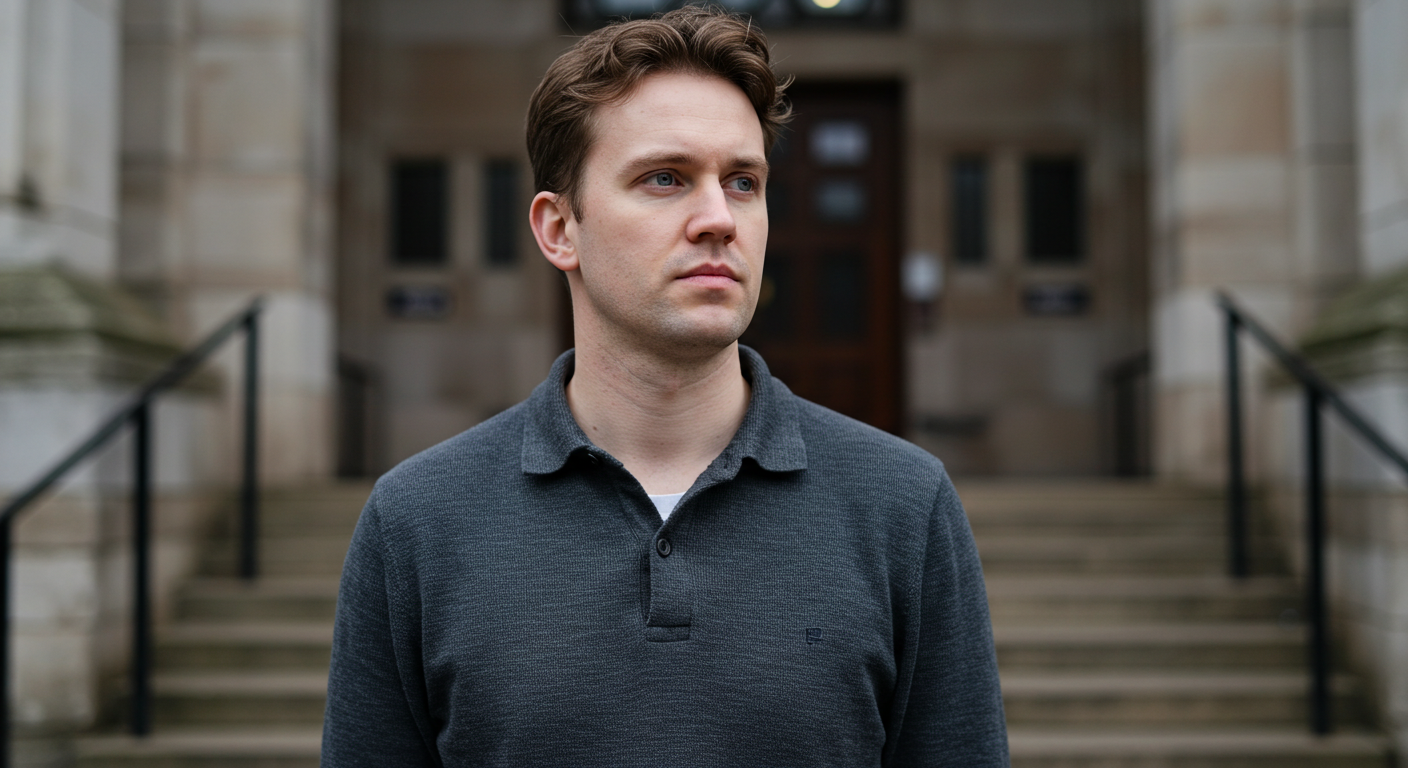What Are the Common Defences Against Violent Crime Charges?

What Are the Common Defences Against Violent Crime Charges?
When facing violent crime charges, understanding the defences available to you is crucial in ensuring a fair legal process. Violent crime charges can have severe consequences, including imprisonment and a criminal record. To navigate this complex legal landscape, it is important to have knowledge about common defences against such charges.
Before diving into the common defences against violent crime charges, it is important to have a clear understanding of violent crime charges themselves. Violent crimes encompass a range of offences that involve the use or threat of physical force against another person. This can include crimes such as assault, robbery, murder, and domestic violence.
In criminal law, defences are legal strategies used to argue against a defendant’s guilt. These defences aim to challenge the prosecution’s case by presenting evidence or arguments that create reasonable doubt, casting doubt on the defendant’s responsibility for the alleged crime.
One fundamental principle of criminal law is the presumption of innocence. This means that the accused is presumed innocent until proven guilty. It is the prosecution’s burden to prove beyond a reasonable doubt that the accused committed the crime. The defendant, through their defence, can challenge the evidence and arguments presented by the prosecution.
It is important to note that the effectiveness of these defences can vary depending on the specific circumstances of each case. The role of evidence, both for the prosecution and the defence, is crucial in establishing or disputing the facts of the case. Consulting with a skilled criminal defence solicitor can provide valuable guidance and representation throughout the legal process.
Understanding Violent Crime Charges

When facing charges related to violent crimes, it is crucial to have a comprehensive comprehension of the nature of these charges and the available defences. There are several key aspects that require consideration, including:
-
- Legal definitions: It is essential to familiarise yourself with the specific laws and definitions
- Evidence: Carefully evaluate the evidence presented against you and ascertain its alignment with the charges you are currently confronting.
- Self-defence: If applicable, understanding the criteria for claiming self-defence can play a vital role in constructing your defence strategy.
- Alibi or mistaken identity: Presenting evidence that establishes your presence elsewhere during the time the crime was committed or proving mistaken identification can serve as strong defences.
- Legal representation: It is highly advisable to seek the guidance of an experienced defence solicitor who specialises in violent crime cases. Their expertise will help you navigate the complexities of the legal process effectively.
Remember, comprehending the charges and having a sound defence strategy are crucial when facing violent crime allegations.
What Are Defences in Criminal Law?
Defences in criminal law refer to various strategies used by defendants to challenge or counter accusations of committing a violent crime. These strategies aim to prove the defendant’s innocence or minimise their legal responsibility. Some common defences in criminal law include:
-
-
- Self-defence: Claiming that the defendant acted in order to protect themselves from harm.
- Duress: Arguing that the defendant committed the crime under the immediate threat of danger.
- Insanity: Asserting that the defendant is mentally incapable of understanding their actions.
- Mistake of fact: Claiming that the defendant’s actions were based on a genuine misunderstanding.
- Alibi: Proving that the defendant was elsewhere at the time the crime was committed.
-
These defences provide individuals accused of violent crimes with legal options to contest the charges against them.
Presumption of Innocence

The Presumption of Innocence is a vital and important principle within the criminal justice system. It signifies that an individual is considered innocent until proven guilty beyond a reasonable doubt.
This fundamental presumption puts the burden of proving guilt on the prosecution, which must present substantial evidence. The Presumption of Innocence serves as the cornerstone of a just trial and safeguards individuals from unjust convictions.
Defendants can utilise this principle to challenge the credibility of the evidence brought against them, making it a formidable defence strategy. To secure a conviction, the prosecution must meet a demanding standard of proof due to the power of the Presumption of Innocence.
Common Defences Against Violent Crime Charges
Self-Defense
-
-
- Self-defence: Self-defence is a legal defence strategy used by individuals who believe their actions were necessary to protect themselves from harm.
- Reasonable belief: The individual must have a genuine and reasonable belief that they were in immediate danger of being harmed.
- Proportional force: The force used to defend oneself must be proportional to the perceived threat. Excessive force may negate the claim of self-defence.
- Imminent threat: The threat of harm must be imminent, meaning that there is no reasonable opportunity to retreat or escape.
- Objective standard: The court will evaluate the situation objectively to determine whether a reasonable person would have acted in the same way given the circumstances.
- Immediate reporting: It is important to report the incident to the authorities as soon as possible and provide a detailed account of the events.
- Evidence and witnesses: Gathering evidence, such as surveillance footage or witness testimonies, can support the claim of self-defence.
- Consulting a solicitor: Seeking legal advice from a criminal defence solicitor experienced in self-defence cases is crucial to navigate the legal process effectively.
-
Lack of Intent
When it comes to defending against violent crime charges, one common defence is the lack of intent. This defence argues that the accused did not have the Lack of Intent to commit the crime in question.
For example, if someone accidentally causes harm to another person, they can claim that their actions were not intentional. To prove lack of intent, evidence such as witness testimonies, surveillance footage, or forensic analysis may be presented in court. It’s important to have a skilled criminal defence solicitor who can build a strong case using this defence strategy.
Alibi
An alibi is a common defence against violent crime charges. It provides critical evidence indicating that the accused individual was in a different location at the time the crime was committed. To establish an alibi, the defendant must produce witnesses, surveillance footage, or other credible evidence to authenticate their presence at an alternate location.
This defence strategy can effectively weaken the prosecution’s case by raising doubts regarding the defendant’s participation in the crime. It is important to emphasise that the burden of proof rests upon the defendant to substantiate their alibi with reliable and persuasive evidence.
Insanity
Insanity is a legal defence used in criminal cases where the defendant argues that they were not mentally capable of understanding their actions or distinguishing right from wrong. This defence can be used to establish that the defendant should not be held criminally responsible for their actions due to their mental state at the time of the offence.
Some factors that may be considered when evaluating an insanity defence include the defendant’s medical history, any diagnosed mental illnesses, and whether they were able to comprehend the consequences of their actions. It is up to the court to determine if the defendant meets the legal criteria for an insanity defence.
Mistaken Identity

Mistaken identity is a frequently employed defence strategy in criminal law cases. It arises when the accused argues that they have been inaccurately identified as the perpetrator of the crime.
This defence is commonly utilised in situations where there is a dearth of credible evidence or when the testimony of eyewitnesses is not trustworthy. In order to establish the claim of mistaken identity, the defence may introduce various types of evidence, including alibis, surveillance footage, or DNA analysis, to substantiate the argument that the accused was not present at the scene of the crime.
The notion of mistaken identity can have a significant impact on the final verdict of a case and may lead to the exoneration of the accused.
Coercion or Duress
Coercion or duress can be used as a defence against charges of violent crime. When referring to coercion, we mean being forced or compelled to commit a crime due to the threat or fear of harm. On the other hand, duress involves finding yourself in a situation where there is a reasonable belief that harm or danger will ensue if the crime is not committed.
In order to successfully argue coercion or duress as a defence, it is necessary to prove that there was an immediate threat or actual harm, and that the defendant had no reasonable alternative but to engage in the criminal conduct.
Proving False Accusations
Proving false accusations is a challenging but crucial defence in criminal cases. It involves gathering evidence that disproves the allegations made by the accuser. This evidence can include witness testimonies, surveillance footage, phone records, or any other relevant documentation.
The defence solicitor will work diligently to expose any inconsistencies or contradictions in the accuser’s story. They may investigate the accuser’s background and motives to establish a pattern of false accusations or potential bias.
Ensuring justice, proving false accusations is essential to protect the rights of the defendant and ensure a fair and just outcome in the legal process.
The Role of Evidence

When it comes to defending against violent crime charges, evidence plays a crucial role in determining the outcome of a case. Here are some key points about
Establishing innocence: The defence relies on evidence that disproves the prosecution’s claims and establishes the defendant’s innocence.
Affirming self-defence: Evidence such as eyewitness testimonies, surveillance footage, or physical injuries can support the claim of self-defence.
Casting doubt: The defence can challenge the credibility or reliability of the prosecution’s evidence to create reasonable doubt in the minds of the jury.
Exposing flaws: Examination of evidence may reveal inconsistencies, mishandling, or contamination, casting doubt on its accuracy.
Presenting alternate theories: The defence may introduce evidence that supports an alternate explanation or points toward another potential suspect.
Working with a Criminal Defence Solicitor

When facing charges for a violent crime, it is imperative to collaborate with a criminal defence solicitor. They will provide invaluable guidance and support throughout the legal process. A defence attorney will thoroughly analyse the evidence, conduct interviews with witnesses, and formulate a formidable defence strategy.
They will also ensure the safeguarding of your rights and fervently advocate for the best possible outcome. By working alongside a Criminal Defence Solicitor, you can attain peace of mind, knowing that you have a seasoned and knowledgeable professional on your side, championing for your rights and assisting you in navigating the intricacies of the legal system.
Notice: Informational Content Disclaimer
The content provided on this website, including articles, blog posts, and other informational materials, is intended for general informational purposes only. It is not intended as, and should not be considered, legal advice.
Visitors to this website should be aware that the information presented here is not a substitute for seeking legal advice from a qualified solicitor or legal professional. Each individual's legal situation is unique, and the information provided may not be applicable to specific circumstances.
If you require legal advice or have specific legal questions, we encourage you to contact us directly. Our experienced team of solicitors is here to assist you with your legal needs and provide tailored advice to address your concerns.
Please be advised that any communication through this website, including the use of contact forms or email, does not create a solicitor-client relationship. Confidential or time-sensitive information should not be sent through this website. To establish a solicitor-client relationship and discuss your legal matters in detail, please contact us for a consultation.
We strive to provide accurate and up-to-date information, but we make no representations or warranties regarding the accuracy, completeness, or suitability of the information contained on this website. We shall not be liable for any reliance placed on the information provided herein.
Thank you for visiting our website. We look forward to the opportunity to assist you with your legal needs.




